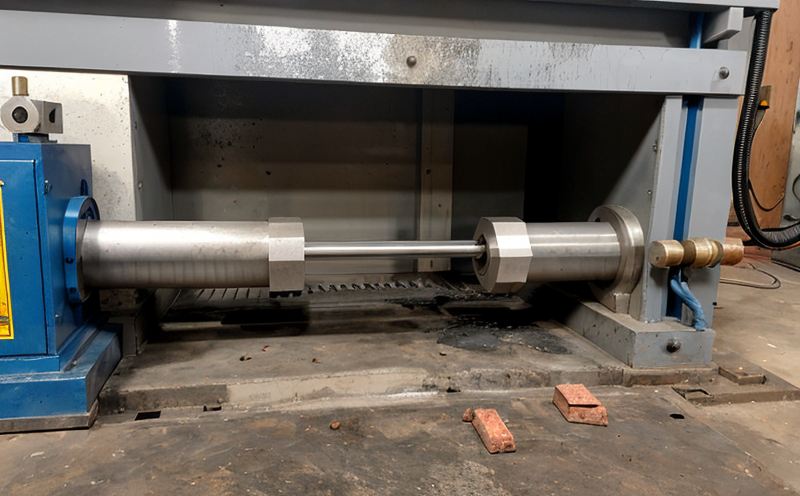ISO 527 Tensile Properties of Plastics Validation Method Development Test
The ISO 527 tensile properties test is a fundamental method used to evaluate the mechanical behavior of plastics. This standard provides comprehensive guidelines for determining the tensile strength, elongation at break, and other critical physical attributes that are essential in quality assurance, R&D, and compliance with industry specifications.
Developing validation methods based on ISO 527 ensures that materials meet specific performance criteria across various applications, from automotive parts to consumer electronics. The test is particularly important for industries where material integrity plays a crucial role in product safety and reliability. By validating the method according to this standard, manufacturers can ensure consistent results that are comparable with other laboratories globally.
The process involves several key steps: selecting appropriate specimens, preparing them according to strict dimensions specified by ISO 527, and conducting tests under controlled environmental conditions. This ensures accurate measurement of tensile properties such as modulus, yield strength, and ultimate tensile strength. The results help in optimizing material selection, ensuring product performance meets regulatory requirements.
Developing a robust validation method also involves validating the equipment used for testing against ISO 527 standards. This includes calibrating machines like universal testing machines (UTMs) to ensure they adhere strictly to the specified load and displacement ranges. Compliance with these parameters is crucial because any deviation can lead to inaccurate test results, affecting both quality control processes and subsequent product design iterations.
The importance of this validation cannot be overstated; it directly impacts manufacturing efficiency by providing reliable data that guides material selection and process optimization. For instance, if a particular plastic exhibits unexpected behavior during testing, further investigation may reveal flaws in the production process or inherent weaknesses within the polymer structure itself. Addressing these issues early allows for more informed decisions regarding raw material sourcing and processing techniques.
Furthermore, adherence to ISO 527 helps maintain consistency across different batches of materials produced by various suppliers. This ensures uniformity not only between individual products but also throughout large-scale manufacturing operations. Such consistency is vital when scaling up production or launching new product lines based on newly developed plastics.
In summary, the development and validation of ISO 527 tensile tests are integral to ensuring high-quality materials that meet stringent industry standards. By following this rigorous procedure, manufacturers can enhance their competitive advantage through superior product performance while simultaneously meeting regulatory obligations.
- Benefits: Ensures accurate measurement of tensile properties; supports consistent quality control processes; aids in optimizing material selection and process improvements;
- Customer Impact and Satisfaction: Provides reliable data for informed decision-making; enhances product performance, leading to increased customer satisfaction.
Why It Matters
The ISO 527 tensile properties test is critical because it provides a standardized approach to evaluating the mechanical characteristics of plastics. This standardization ensures that tests are conducted consistently across different laboratories, which in turn facilitates comparability and repeatability of results.
For quality managers and compliance officers, this means they can rely on accurate data when making decisions about material specifications or supplier performance. In R&D environments, the consistent nature of ISO 527 tests allows researchers to identify trends and patterns that would otherwise be obscured by variability in testing methods.
The test is particularly valuable for industries where material integrity is paramount, such as automotive manufacturing or aerospace engineering. These sectors require materials that can withstand extreme conditions without compromising safety or performance. By validating the tensile properties according to ISO 527 standards, these organizations ensure their products meet the highest level of reliability and safety.
From a broader perspective, compliance with international standards like ISO 527 helps manufacturers maintain their market positioning by demonstrating commitment to quality assurance practices recognized worldwide. This is especially important in global markets where regulatory requirements vary significantly from one country to another.
In summary, the significance of this test lies in its ability to provide consistent and reliable data that supports informed decision-making processes within various industries. It plays a vital role in ensuring product performance meets not only internal quality goals but also external regulatory expectations.
Benefits
- Enhanced Product Performance: Ensures that materials used in production meet the required mechanical properties, leading to improved product performance;
- Consistent Quality Control: Provides reliable data for quality assurance processes, ensuring consistent results across different batches of material;
- Improved Regulatory Compliance: Helps manufacturers comply with international standards and regulations, reducing the risk of non-compliance issues;
- Informed Decision-Making: Allows companies to make well-informed decisions regarding material selection based on accurate test results;
- Increased Customer Satisfaction: By ensuring high-quality materials are used in production, manufacturers can improve overall product quality, leading to higher customer satisfaction levels;
- Sustainable Production Processes: Identifies areas where process improvements could be made, helping companies operate more sustainably over time.
Customer Impact and Satisfaction
- Prompter Quality Assurance: Customers benefit from faster access to accurate test results, which helps speed up the approval process for new materials;
- Better Supplier Selection: By ensuring suppliers meet ISO 527 standards, customers can choose reliable partners who consistently deliver high-quality products;
- Increased Product Reliability: Products that undergo rigorous tensile testing are more likely to perform reliably under real-world conditions, enhancing customer trust and loyalty;
- Lower Risk of Non-Compliance: Ensures compliance with international standards, reducing the risk of regulatory penalties or product recalls;
- Better Value for Money: Accurate testing ensures that materials are used efficiently, minimizing waste while maximizing value.





